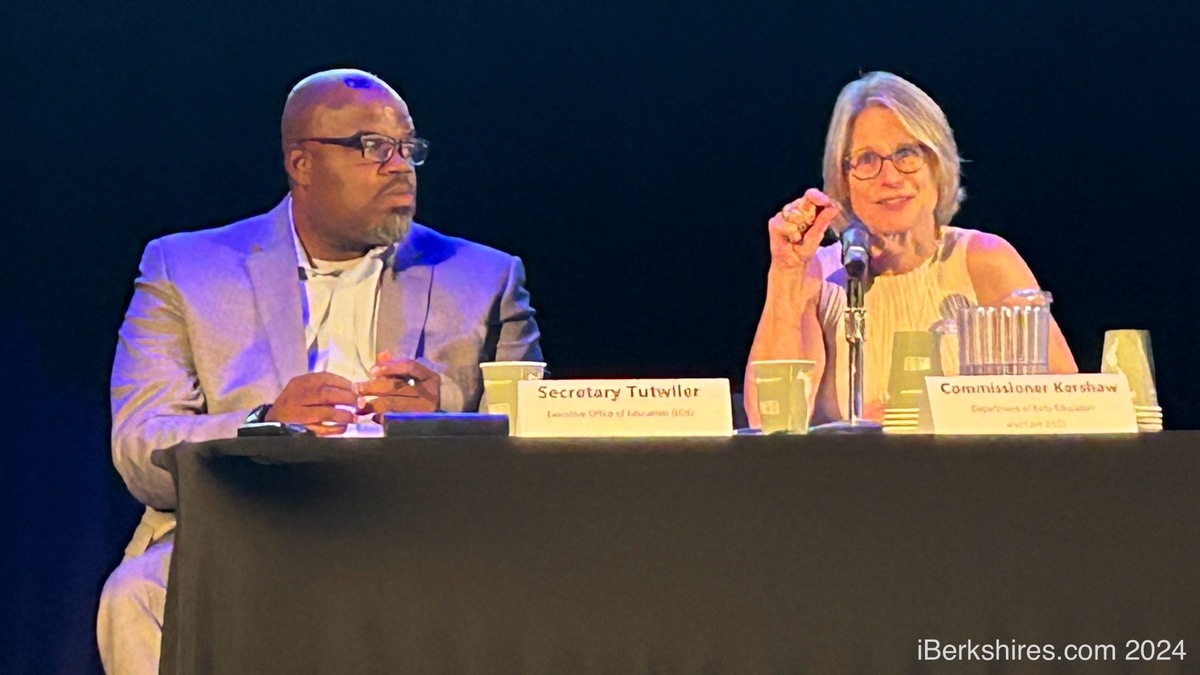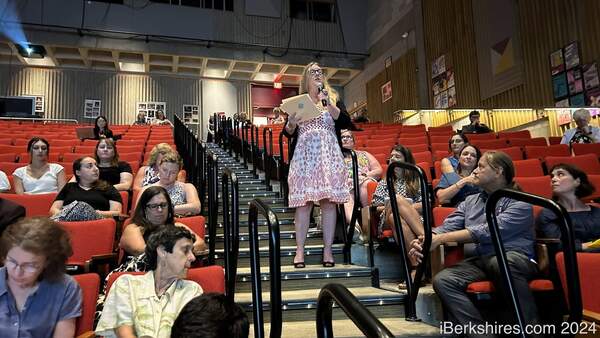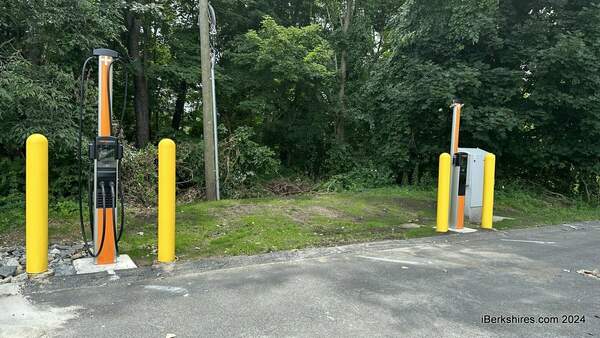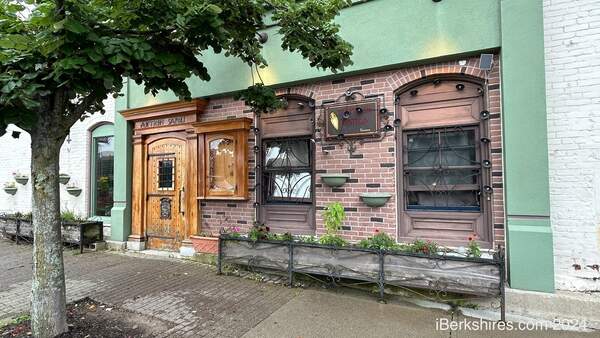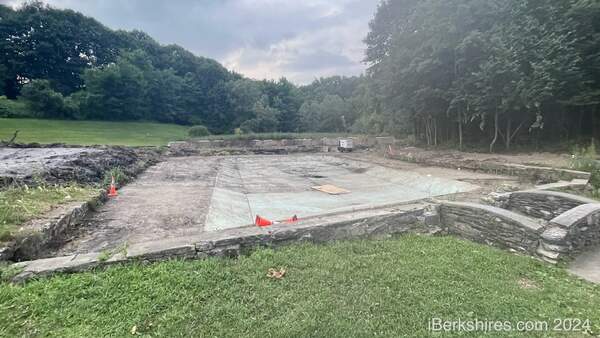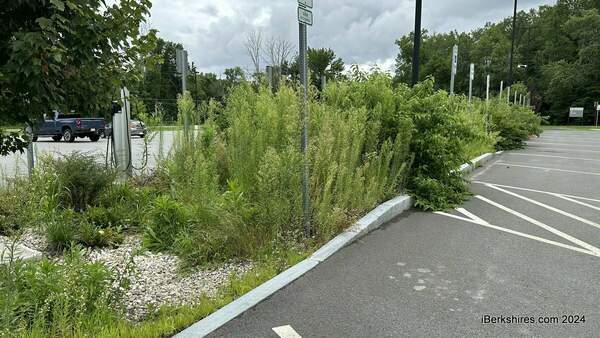Governor Signs Bill to Improve Transportation Across Massachusetts
AMESBURY, Mass. — Governor Maura T. Healey signed the Chapter 90 conference committee bill ("Chapter 90"), which authorizes $375 million in funding to reimburse municipalities for bridge and road maintenance and funding for transportation-related infrastructure grants.
Governor Healey, Lieutenant Governor Kim Driscoll, and Massachusetts Department of Transportation (MassDOT) Secretary Gina Fiandaca celebrated the bill signing at events in Lowell and Amesbury.
"This Chapter 90 bill will deliver funds straight to municipalities to support projects that we know are critical to their economic development, including bridge and road maintenance, public transit, electric vehicles and charging infrastructure, and pedestrian, cyclist and car safety," said Governor Healey. "We're grateful to the Legislature for advancing this essential funding and to our friends in labor who will make sure this work gets done with the high level of quality and safety that they are known for."
This funding includes the following:
-
$200 million in one-year funding for MassDOT's Chapter 90 program, which reimburses cities and towns for construction, reconstruction, and maintenance of municipal roads and bridges.
-
$25 million to fund a new MassDOT program to reimburse cities and towns for maintenance of municipal roads and bridges, with a formula based on road mileage, population, and whether municipality is considered rural, which is particularly helpful for rural communities.
-
$25 million for MassDOT grants for construction, reconstruction, resurfacing, repair, maintenance and improvement of pavement and surface conditions on non-federally funded roadways.
-
$25 million for MassDOT's Municipal Small Bridges program, which supports engineering, design, construction, reconstruction and maintenance on non-federally aided bridges.
-
$25 million for MassDOT's Complete Streets program, which supports municipalities seeking to design streets accessible to people of all ages, abilities, and modes of travel.
-
$25 million for MassDOT grants for municipalities to prioritize and enhance bus- focused transit initiatives.
-
$25 million for MassDOT grants for municipalities to study, design, construct or improve access at mass transit and commuter rail stations.
-
$25 million for MassDOT grants supporting municipalities and regional transit authorities transitioning to electric and zero emission vehicles.
"Chapter 90 funding is a crucial part of maintaining and expanding safe, reliable, and equitable roadways and infrastructure across our Commonwealth," said MassDOT Secretary Gina Fiandaca. "Within this funding, we're able to provide cities and towns with resources to keep their roads and bridges in good repair. We're also able to invest in multi-modal transportation options through grant programs like MassDOT's Complete Streets program, which helps communities design streets that are accessible to all, whether residents are walking, biking, or traveling by car. I want to thank Governor Healey, Lieutenant Governor Driscoll, and the Legislature for supporting these key transportation investments."
Authorized through Massachusetts General Laws (M.G.L) Chapter 90, Section 34, the Chapter 90 Program provides funding to municipalities for the implementation of capital improvements on local public ways. Every municipality in the Commonwealth is allocated a portion of total program dollars.
In 2021, MassDOT released new Chapter 90 resources including online tools and guides for Massachusetts cities and towns. MassDOT continues to provide technical expertise from their district offices: MassDOT engineers work directly with communities on their transportation issues and help them develop strategies for using Chapter 90 funds and direct funding opportunities.?These resources provide help communities better plan projects and budget their Chapter 90 funds.? ?
The Commonwealth began providing aid to municipalities to assist with local road and bridge costs in 1973 as authorized through M.G.L Chapter 90, Section 34. Over time, this state aid became known as the Chapter 90 Program. The Massachusetts Department of Transportation administers the Chapter 90 Program under the powers of the department provided in MassDOT's enabling legislation through Chapter 6C.
The purpose of the Chapter 90 Program is to provide municipalities with an annual funding source for improvements to and investments in local transportation networks. The Chapter 90 Program allows municipalities to evaluate their unique transportation needs and goals and allocate funding dollars accordingly. This is a reimbursement program, which means that municipalities pay for approved expenses up-front and receive reimbursement afterwards.
Funding levels for the Chapter 90 Program are established by Massachusetts Legislature and approved by the Governor on an annual basis. Based on the amount approved, each of the Commonwealth's 351 municipalities are allocated a portion of overall Chapter 90 Program dollars each state fiscal year, which runs July 1 through June 30. Additional information about Chapter 90 is available on mass.gov.

